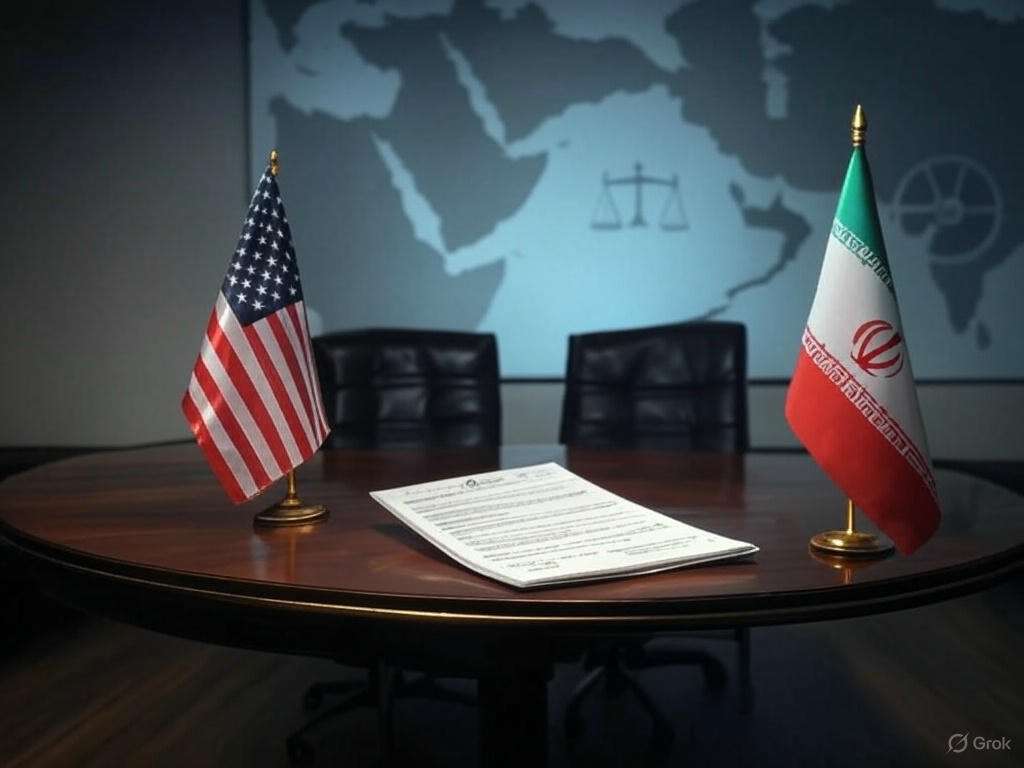Radar Armenia presents an article on US-Iran relations by Trita Parsi, co-founder of the Quincy Institute for Responsible Statecraft website.
“Donald Trump’s first diplomatic meeting with Tehran could not have gone better. Both sides described the talks in Oman as positive and constructive. However, the real sign of their success was that Iranian Foreign Minister Abbas Araghchi agreed to speak directly with Trump’s special envoy, Steve Witkoff.
During Biden’s four years in office, Iran has never agreed to hold direct meetings with US officials at the Secretary of State level. Trump now has the opportunity to secure a “better deal” in his bid for a triple win.
Trump has repeatedly stated that his only “red line” is preventing Iran from developing nuclear weapons. But it is unclear whether he will seek to achieve this by completely dismantling Iran’s nuclear program, along the lines of the Libyan model, which is Israel’s position, or whether he will opt for a verification-based solution that limits the program without eliminating it.
The problem with the “Libya model,” of course, is that Iran will never accept such a capitulation. That is precisely why Israel insists on this approach, calculating that such demands guarantee the failure of diplomacy and force Trump to resort to military action.
But Witkoff did not mention dismantling during Saturday’s talks. The parties discussed the degrees of restriction of the program and the lifting of sanctions that Trump is prepared to propose in response.
While dismantling may seem more stringent and harsh, it is impossible. The verification-based model is not only practical, but Tehran already agreed to such a model in 2015 and can agree again. The problem is that Iran’s nuclear program has made significant progress in recent years, and returning it to 2015 levels is a difficult task.
Trump, however, is in a better position to reverse that progress because he is prepared to offer Tehran the lifting of primary sanctions, which prohibit American companies from trading with Iran. Barack Obama never considered lifting primary US sanctions on Iran, fearing that it would increase Republican opposition to the deal. He also wanted the agreement to be strictly nuclear-only.
Including the lifting of primary sanctions would have left Obama vulnerable to accusations that he was trading nuclear security for American corporate interests.
In contrast, according to his Iran negotiator, Rob Malley, Biden has had a “hesitant” attitude toward the deal and has focused on the domestic political costs of lifting sanctions rather than on the nuclear gains that proper sanctions could provide.
Trump is different. He tends to view sanctions as punishment for American companies and seems eager to lift them to allow American companies to return to Iran.
Given Iran’s progress with its nuclear program, Trump’s willingness to lift primary sanctions may be precisely why he has the opportunity to turn back the atomic clock to 2016. He may seek a “more for more” model, similar to what Obama and Biden failed to achieve, because he is willing to bring more to the table.
Pursuing a verification-based model, with nuclear weapons as the only red line, allows Trump to secure a triple win for the United States: preventing an Iranian nuclear bomb, avoiding war with Iran, and creating significant business opportunities for American companies that will help create jobs in the United States.
Sanctions against Iran have significantly damaged the US economy. A 2014 study by Jonathan Leslie, Reza Marashi, and I found that between 1995 and 2012, US sanctions deprived the US economy of $135 billion to $175 billion in potential export earnings from Iran.
This has also led to significant job losses in the United States. On average, lost export earnings equate to 50,000 to 66,000 lost jobs per year. In 2008, that number reached 279,000.
If Trump sticks to a strategy that prioritizes the nuclear issue without focusing on Iran’s ballistic missiles or ties to groups like Hezbollah and the Houthis, opts for a verification-based deal over a Libya-style dismantlement, and uses the lifting of primary sanctions to roll back Iran’s nuclear program and open its economy to American companies, he will secure a triple win for America.
Such a deal would indeed be better.”
Prepared by Arman Galoyan


















